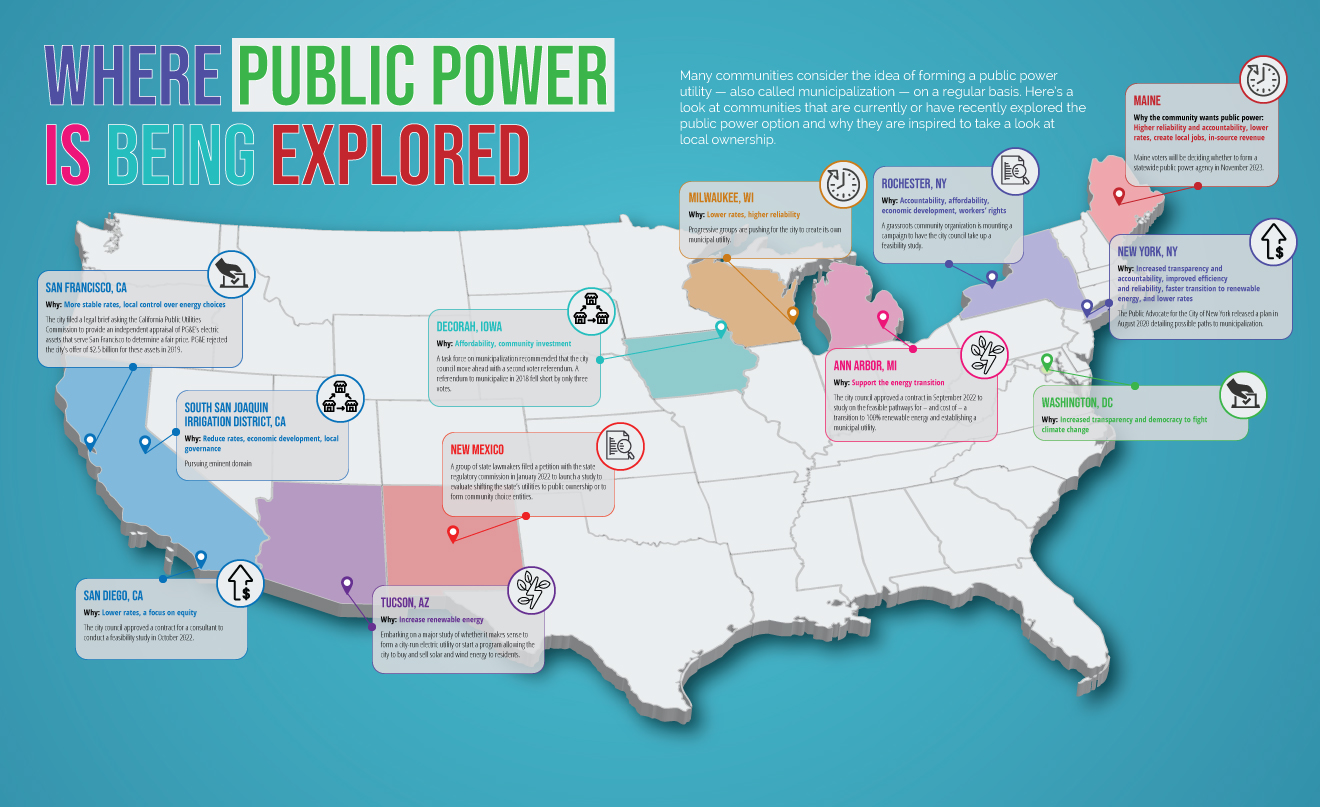Many communities consider the idea of forming a public power utility – also called municipalization – on a regular basis. Here’s a look at communities who are currently or have recently explored the public power option and why they are inspired to take a look at local ownership.
Maine
Why the community wants public power: Higher reliability and accountability, lower rates, create local jobs, in-source revenue
Maine voters will be deciding whether to form a statewide public power agency in November 2023.
Rochester, NY
Why: accountability, affordability, economic development, workers’ rights
A grassroots community organization is mounting a campaign to have the city council take up a feasibility study.
New York, NY
Why: Increased transparency and accountability, improved efficiency and reliability, faster transition to renewable energy, and lower rates
The Public Advocate for the City of New York released a plan in August 2020 detailing possible paths to municipalization.
Washington, DC
Why: Increased transparency and democracy to fight climate change
Ann Arbor, MI
Why: Support the energy transition
The city council approved a contract for a study in September 2022 on the feasible pathways for – and cost of – a transition to 100% renewable energy and establishing a municipal utility.
Decorah, Iowa
Why: Affordability, community investment
A task force on municipalization recommended that the city council move ahead with a second voter referendum. A referendum to municipalize in 2018 fell short by only three votes.
New Mexico
A group of state lawmakers filed a petition with the state regulatory commission in January 2022 to launch a study to evaluate shifting the state’s utilities to public ownership or to form community choice entities.
Milwaukee, WI
Why: Lower rates, higher reliability
Progressive groups in Milwaukee are pushing for the city to create its own municipal utility.
Tucson, AZ
Why: Increase renewable energy
Embarking on a major study of whether it makes sense to form a city-run electric utility or start a program allowing the city to buy and sell solar and wind energy to residents.
South San Joaquin Irrigation District, CA
Why: reduce rates, economic development, local governance
Pursuing eminent domain
San Diego, CA
Why: Lower rates, a focus on equity
The city council approved a contract for a consultant to conduct a feasibility study in October 2022.
San Francisco, CA
Why: More stable rates, local control over energy choices
The city filed a legal brief asking the California Public Utilities Commission to provide an independent appraisal of PG&E’s electric assets that serve San Francisco to determine a fair price. PG&E rejected the city’s offer of $2.5 billion for these assets in 2019.


